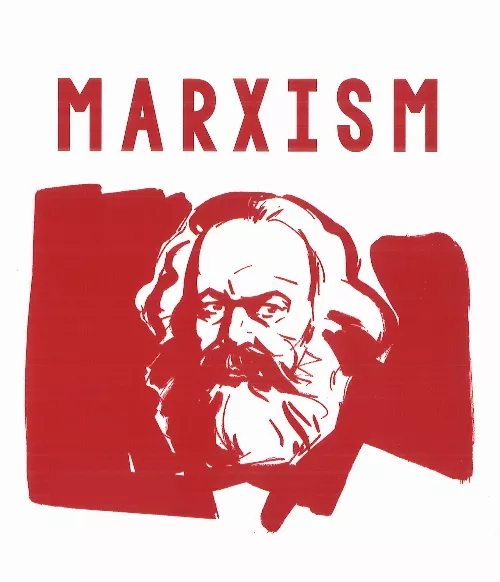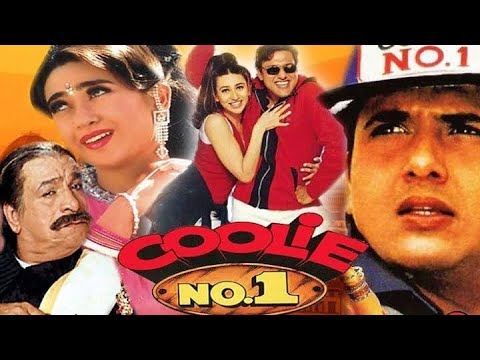Welcome to my blog,
This blog is part of our study. This Thinking activity is based on Marxism and Ecocriticism and was assigned by Dr. Dilip Barad sir Department of English MKBU.
Marxism
The theory of Marxism, conceived by the German philosopher Karl Marx and further developed by his collaborator Friedrich Engels, stands as a profound and multifaceted framework that transcends mere socio-economic analysis. At its core, Marxism introduces historical materialism as the linchpin of societal evolution, contending that the contours of human history are shaped by the dynamic interplay between social classes and their modes of material production. A foundational premise of Marxist thought is the concept of class struggle, a dialectic propelled by the inherent tension between the bourgeoisie, the capitalist class wielding economic power, and the proletariat, the working class whose labor fuels the engines of production. Marx's keen observations on the exploitative nature of this relationship underline the theory's socio-economic critique, asserting that the fruits of labor, or surplus value, are systematically siphoned off by the bourgeoisie, perpetuating a cycle of economic inequality.
Marxist ideology is the notion of class consciousness—a collective awareness among the proletariat regarding their shared exploitation and the imperative for united action. This emphasis on the socio-political dimension distinguishes Marxism as not merely an economic doctrine but a holistic worldview encompassing social structures and political dynamics. The seminal works of Marx and Engels, notably "The Communist Manifesto" (1848) and Marx's magnum opus "Das Kapital" (1867), lay the intellectual groundwork for Marxist theory. The former serves as a rallying cry for the proletariat to cast off their chains through revolutionary means, while the latter meticulously dissects the mechanics of capitalism, dissecting commodities, labor, and capital to expose the systemic flaws of the prevailing economic order.
Marxism's revolutionary spirit extends beyond the economic realm, envisaging a fundamental reshaping of society. The call for a proletarian revolution is not merely a change in economic ownership but a transformative societal shift, aiming for the establishment of socialism and eventually a classless, communist society. Marxist economics offers a trenchant critique of capitalism's inherent contradictions—its susceptibility to overproduction, cyclical economic crises, and the concentration of wealth in the hands of a privileged few. The demand for the equal distribution of wealth echoes through Marxist discourse, advocating for a society where resources are collectively owned and shared to eradicate the glaring socio-economic disparities that plague capitalist systems. Marxism emerges as a comprehensive lens through which to analyze the intricate tapestry of human history, societal structures, and economic systems. Its enduring relevance lies not only in its critique of capitalism but in its vision for a more egalitarian world forged through the crucible of class struggle and revolutionary change. As we revisit Marxist theory, its tenets beckon us to scrutinize not only the economic relations that underpin society but also the broader socio-political fabric in the pursuit of a more just and equitable future.
Applying Marxist theory :
Movie:- Coolie No - 1
In the realm of literature and entertainment, the influence of Marxist thought often manifests itself in narratives that keenly scrutinize the disparities between social classes. A striking example of this is the film "Coolie No - 1," which deftly navigates the intricate dynamics of a society marked by stark differences between the privileged upper class and the marginalized lower class. This cinematic creation mirrors the principles of Marxism, shedding light on the systemic inequalities that pervade our social fabric.
The renowned Hungarian thinker Georg Lukács, a prominent Marxist critic, introduces a nuanced perspective on the role of ideology in literature. Lukács proposes that every significant work of literature constructs its own distinct world, seemingly detached from the rigors of everyday reality. However, he contends that masterpieces of realism, such as those crafted by literary giants like Balzac or Tolstoy, possess a unique power. These works, according to Lukács, immerse readers in a fictional universe that paradoxically reflects the very essence of life with unparalleled concreteness and clarity, complete with its motivating contradictions.
"Coolie No - 1" serves as a compelling case study in the interplay between literature and Marxism. The narrative unfolds against the backdrop of a society sharply divided along class lines, where the upper class revels in opulence while the lower class grapples with adversity. This stark dichotomy encapsulates the core Marxist tenet of class struggle, as the film's characters navigate a world shaped by the socioeconomic forces that Marx identified as the driving engines of historical change. Lukács' notion of literature creating its own world finds resonance in "Coolie No - 1." The film, through meticulous storytelling and character development, constructs a microcosm that encapsulates the broader contradictions and tensions inherent in the society it represents. The characters, though seemingly unique to this fictional realm, become conduits for conveying the essential tendencies and determinants of their epoch. In doing so, the film transcends its role as mere entertainment, transforming into a mirror that reflects the very pulse of societal existence.
"Coolie No - 1" aligns with Lukács' assertion that realism in literature brings to life the greatest possible richness of the objective conditions of life. By immersing viewers in the palpable realities faced by both the privileged and the underprivileged, the film serves as a vehicle for social critique. It becomes a potent tool for exposing the systemic contradictions that perpetuate and exacerbate class divisions.
Another one is this video in which we find out what is Marxism and what they wants. There were people from the working class and they demanded their rights. Their fight is directly with the corporate world and the political world.
Ecocriticism
Ecocriticism, a dynamic interdisciplinary field, emerges as a pivotal lens through which literature and the environment are examined in unison, drawing on the collective wisdom of various scientific disciplines. In this comprehensive approach, eco-critics aim to unravel the intricate relationship between humanity and the natural world, shedding light on the environmental and societal implications woven into the fabric of literary works.
Ecocriticism extends beyond the conventional boundaries of literary analysis. It functions as a holistic investigation, employing insights from diverse scientific realms to discern the impact of corporations and companies on the environment. This scrutiny encompasses both direct and indirect forms of ecological damage, underscoring the urgent need to scrutinize the intersection of corporate activities and environmental well-being. The primary focus of ecocriticism revolves around unraveling the intricate tapestry of human-nature relationships within literature. It ventures into the realms of environmental issues, cultural perspectives on nature, and societal attitudes toward the natural world. As eco-critics delve into these nuanced dimensions, they aim to not only dissect how ecological concerns are presented in literary works but also to scrutinize the underlying behavioral and societal responses to nature.
Ecocriticism is a lens through which we navigate the complex landscape of human behavior in relation to nature and ecological aspects. It scrutinizes the ways individuals within society perceive, interact with, and respond to the environment, thereby becoming a powerful tool for understanding the intricate dance between human societies and the ecosystems they inhabit. Ecocriticism assumes heightened importance. The proliferation of new companies and the relentless march of industrialization underscore the pressing need for a critical discourse that holds a mirror to the environmental implications of societal and corporate actions. The intentional breadth of ecocriticism is evident in its alternative designations, such as "green-cultural studies," "eco poetics," and "environmental literary criticism," highlighting its adaptability to diverse scholarly landscapes.
Ecocriticism emerges as a vital intellectual pursuit, offering a panoramic view of the intricate relationships between literature, society, and the environment. As a broad and intentionally interdisciplinary approach, ecocriticism not only analyzes literary texts but also addresses the urgent ecological challenges posed by modern industrial and corporate practices. In an era of unprecedented environmental concerns, ecocriticism stands as a beacon, inviting scholars and readers alike to contemplate the profound interplay between human narratives and the stories of the natural world.
Applying Ecocriticism theory :
At the heart of "Moana" lies a nuanced portrayal of the symbiotic connection between humanity and the natural world. Ecocriticism, as a lens, invites us to scrutinize how the film navigates environmental issues, cultural perspectives on nature, and humanity's relationship with the Earth. The protagonist, Moana, emerges as a steward of nature, embodying a harmonious coexistence with her island's ecosystem. The film's narrative arc becomes a canvas for ecocritical examination, as Moana's journey unfolds against a backdrop of ecological imbalance and the consequences of human actions on the environment. The mystical connection between Moana and the ocean itself underscores a deeper ecological consciousness, elevating the narrative beyond a mere adventure and into a profound exploration of humanity's role in maintaining the balance of nature.
The portrayal of the character Maui introduces an additional layer to the ecocritical analysis. As a demigod who shape-shifts and wields control over elements, Maui's actions serve as a metaphor for the potential consequences of human intervention in the natural world. His misdeeds, resulting in unintended ecological consequences, offer a cautionary tale that resonates with contemporary environmental concerns. The film also engages with cultural attitudes towards nature, drawing from Polynesian traditions and mythology. This interweaving of cultural elements becomes a key focal point for ecocritics, allowing them to analyze how the narrative both reflects and shapes societal perceptions of the environment.
"Moana," therefore, stands as a unique canvas for ecocritical exploration. Through vibrant animation and a compelling storyline, the film not only captivates audiences but also prompts critical reflection on the delicate balance between human endeavors and nature's intricate web. Disney's portrayal of Moana as a guardian of both her people and the environment aligns with the ethos of ecocriticism, inviting viewers to consider the broader implications of our actions on the planet. "Moana" exemplifies the potential of popular culture, particularly animated films, to serve as a conduit for ecocritical discourse. By seamlessly weaving environmental themes into its narrative fabric, the film transcends entertainment, beckoning audiences to contemplate their place in the world and the profound interconnectedness between humanity and nature.
Word Count - 1660
Thank you for Reading and Visiting...








No comments:
Post a Comment